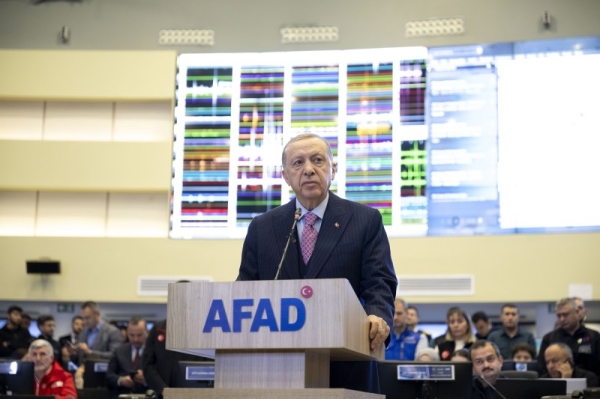
Last Tuesday, Syrian forces took the town of Ma’arat Al-Nu’man in Idlib province, thus bringing under government control the M5 highway that links Damascus with Aleppo. This capture marks a major success for Bashar Assad’s forces after several months of regaining territories lost to rebels. Idlib province, along with the countryside of Latakia and Aleppo, are the last spaces in rebel hands.
Ma’arat Al-Nu’man was also the last holdout of several thousand Hayat Tahrir Al-Sham (HTS) militants. Their elimination was the principal objective of the Assad government and its Russian allies, who began joint military operations in April last year. The current operations in the Idlib area have been remarkably successful, with Syrian forces capturing more than 20 towns. With the fall of Ma’arat Al-Nu’man, only the city of Idlib itself remains to be taken.
These military operations began after the failure of Turkey to fulfill its commitments under the Sochi agreement that was concluded with Russia in September 2018. Russia had then agreed to defer military operations while Turkey separated the militants from the “moderate” opposition.
Turkey’s plan was to then declare the HTS cadres to be “moderates” and co-opt them into the Syrian National Army (SNA) that it has put together in northern Syria. Made up of elements of the Free Syrian Army and local Turkoman and Arab fighters, the SNA is meant to provide Turkey with a local fighting force that will support its occupation of large parts of northern Syria and, when needed, fight the Kurds. However, the extremist HTS militiamen refused Turkish blandishments despite sustained efforts over several months, leading to the current operations.
The Syrian assault has extracted a heavy price from the besieged population. Under heavy bombardment, several hundred civilians have been killed and nearly 400,000 have had to flee northwards toward the Turkish border. This border is closed, with Turkey not taking in more refugees beyond the nearly 4 million it already has. Amid the severe cold weather and grossly inadequate food and services on offer, the refugees face a humanitarian disaster.
At this juncture, Turkish President Recep Tayyip Erdogan on Friday went public with unprecedented criticism of Russia. He blamed Moscow for failing to fulfill its commitments under the Sochi agreement. He denied that the fight at Idlib is against terrorists, pointing out that the fighters are merely defending their homes. He ominously concluded that Turkey would now be obliged “to take our own actions,” suggesting that Turkish forces could enter the fray against the Syrian army to defend the population of Idlib. Turkey has already provided anti-tank missiles to SNA fighters in the area.
Turkey is in no position to distance itself from Russia or seriously oppose Russian actions in Idlib
Talmiz Ahmad
However, there seems to be more swagger than substance in Erdogan’s pronouncements. It is he who failed to fulfill his commitment at Sochi to isolate the HTS fighters, thus bringing on the military operations. These attacks have been ongoing since last April, with steady bombings of civilians and the capture of rebel-held territories by government and Russian forces.
Throughout this period, there have been regular interactions between the Russian and Turkish leaders at summits and on other levels. In January, Russian President Vladimir Putin was in Turkey. Later, the two leaders agreed on a cease-fire at Idlib. This was followed a day later by a meeting of the intelligence chiefs of Turkey and Syria in Moscow — the first high-level contact between the two countries since 2011. They are believed to have agreed on a nine-point plan to take bilateral ties forward, including a pledge to fight terrorism together and to coordinate action against the Kurds. A day before the fall of Ma’arat Al-Nu’man, the Russian and Turkish foreign ministers had a telephone conversation. None of this suggests that Turkey was caught by surprise by the military action at Idlib and the firm Syrian and Russian commitment to eliminate the HTS fighters.
Recent developments actually affirm that Turkey is in no position to distance itself from Russia or seriously oppose Russian actions in Idlib. Since last November, Turkey has positioned itself for a military role in the Libyan conflict and sees strategic advantages for itself in Libya and the Eastern Mediterranean. It is, however, isolated in the region and needs to work closely with Russia, which is backing the opposite side on the Libyan divide.
The conclusion that Erdogan has entered into a Faustian bargain with Putin, in which the latter will have a free hand in Idlib while backing Turkey’s interests in Libya, is inevitable. Hence, Erdogan’s recent fulminations on Idlib and Russia deserve to be viewed with deep skepticism.
Following the meeting of the intelligence chiefs, Russia may now be expected to work toward closer Syrian-Turkish ties, which would, over time, ease the conflictual scenario in Idlib and with the Kurds in the northeast; prepare the ground for the restoration of services, the return of displaced persons and reconstruction; encourage Turkish and US forces to leave Syria; and restore Syria’s territorial integrity and sovereignty.
This vision of peace and prosperity will need a high level of statesmanship. This is the real challenge before Assad and Erdogan.
• Talmiz Ahmad is an author and former Indian ambassador to Saudi Arabia, Oman and the UAE. He holds the Ram Sathe Chair for International Studies at the Symbiosis International University, Pune, India.
Disclaimer: Views expressed by writers in this section are their own and do not necessarily reflect Arab News" point-of-view












